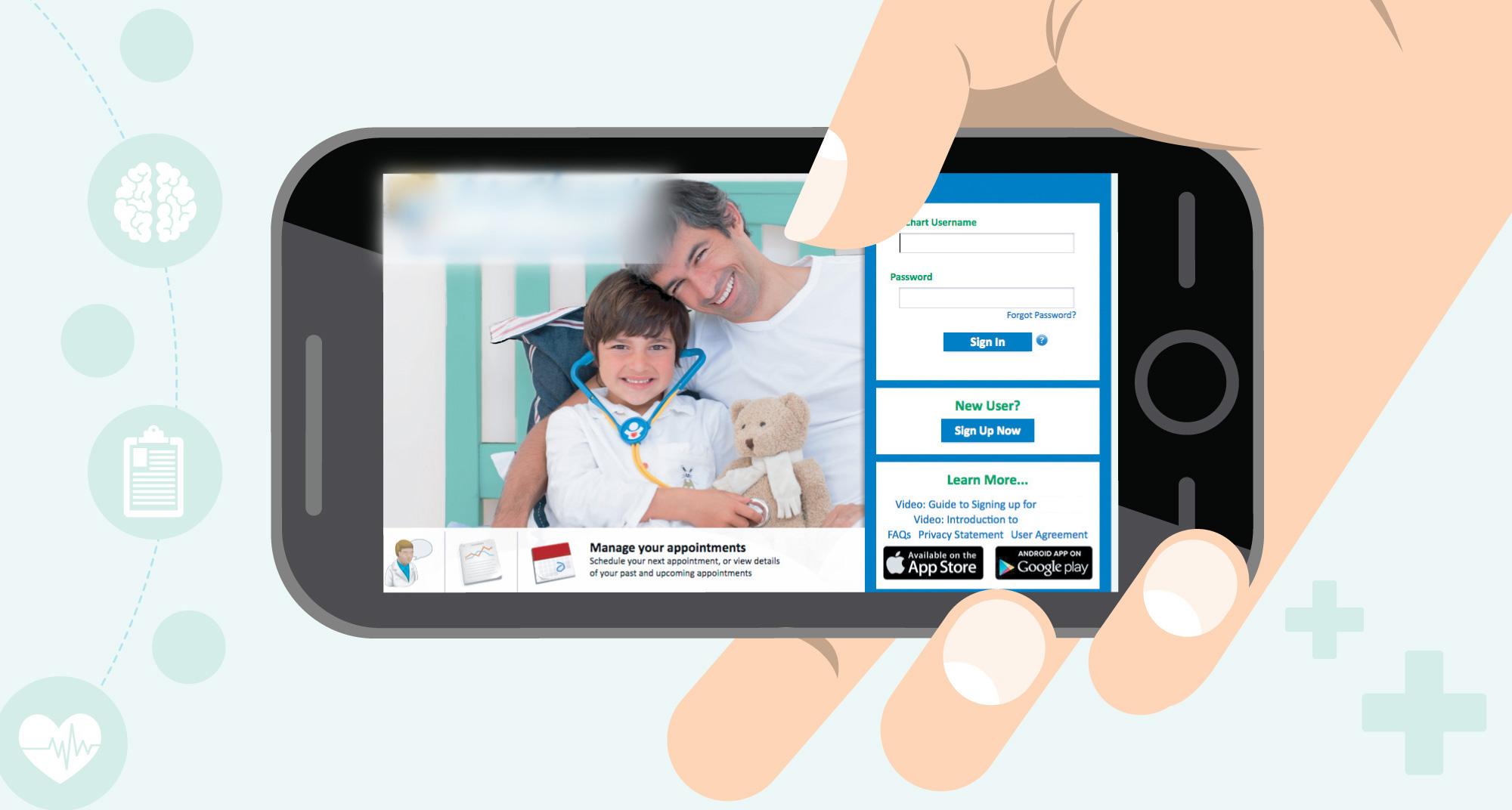
Image provided by Melita Avdagovska.
Imagine managing your health information the way you do your bank account-online, with everything you need at your fingertips.
Currently, most Albertans experience one-way communication regarding their health information. Tests are taken, referrals are made, physicals happen but the information and updates stay with health-care providers. So, wouldn't it be nice if you could see the status of your referral for a MRI just as easily as you can see the shipping status of a clothing order?
Melita Avdagovska, doctor of philosophy candidate at the School of Public Health, is trying to help make that a reality.

"Statistics show that 80 per cent of Canadians want to be able to readily view their medical records, but only 20 per cent have access," says Avdagovska. "Imagine the files you see in your doctor's office on your phone, tablet or computer. That is a patient portal."
Patient portals bring medical information into the hands of the patient. You can make an appointment, find out the status of a referral, review basic health information, or even ask a quick question to a health provider through secure messaging, all in the click of a button. Avdagovska says the technology to make this a reality for Albertans is available; it just needs to be implemented and adopted in a manner that is accessible and meaningful.
Avdagovska was recently awarded a Canadian Institutes of Health Research Health Systems Impact Fellowship. Through the Fellowship she will work with Alberta Health Services (AHS) as it implements a provincial clinical information system during an initiative known as Connect Care. One component of Connect Care, and the area in which Avdagovska's work will focus, is an online patient portal system. Introduced by AHS in 2015, the patient portal is currently being piloted in several clinics in AHS' Edmonton Zone with the goal of province-wide implementation by November 2019.
"Patient portals have been identified as a way to transform health care," explains Avdagovska. "They've been proven to promote accessible and coordinated health-care delivery. They also empower patients as partners in their own care, support individualized care and provide an opportunity for us to monitor population health. It is providing patient-centred care through health-care information."
Working with several clinics where the patient portal was piloted, Avdagovska will focus on the implementation and adoption process. Her research will provide evidence about the strengths and weaknesses of the portal and its implementation for patients, health-care providers, administrators and policy-makers.
She will explore with users their perceptions of the impacts of the patient portal on the quality of care and the accuracy of patient information. Additionally, she will explore if patient portals improve communication between patient and health-care providers, and reported perceptions of whether they improve health-care provider to health-care provider communication.
She will also explore usability, literacy-both technological and health, how providing secure online communication with a health provider might affect remuneration, and questions about how this will impact the evolution of the patient / provider relationship.
She also expects data security will be a primary concern of users, something the Alberta Government and AHS have taken seriously.
"There will be a natural unease about having something as precious and vital as health information in the online domain, but precautions and securities have been taken," says Avdagovska. "To ensure that data is not compromised or changed, the system has layers of security and coding to protect users. Many studies have been done to ensure safety, and no known data breaches have occurred during the patient portal pilot.
Avdagovska is optimistic her research will help clearly identify and mitigate many of the potential barriers to improve uptake of the patient portal in Alberta. But, it can't be done by AHS and the Government of Alberta alone. Doctors have been shown to be the best promoters of patient portals and will play a powerful role in determining the success of the implementation and adoption.
During her embedded work with AHS, Avdagovska will work closely with the office of the Chief Medical Information Officer (CMIO). The CMIO supports the Connect Care initiative to reflect provider and patient needs across the province.
"Patients trust their doctors and other care providers. If they encourage use of portals their patients will be more likely to adopt this system," says Avdagovska.
"Patient portals have the potential to empower patients by providing them with a platform where they can take an active role in the maintenance and monitoring of their health and their health records. It's bringing electronic convenience to the health-care experience, ultimately creating a better system for all users."
The Canadian Institutes of Health Research Health System Impact Fellowship is a key component of the Training Modernization Strategy for Health Services and Policy Research (HSPR). The Fellowship aims to prepare PhD graduates of HSPR and related programs for stronger career readiness with greater impact.
During the Fellowship, Avdagovska will be supervised by her academic institution supervisor Devidas Menon, Professor, School of Public Health, and her host organization supervisor at Alberta Health Services, Dr. Tim Graham, Associate Chief Medical Information Officer, Edmonton Zone, AHS Chief Medical Information Office. She will also be supported by her academic co-supervisor, Karin Olson, professor, Faculty of Nursing, and Mark Ballermann, assistant clinical professor, Faculty of Medicine and Dentistry and senior clinical informatics lead, Clinical Improvement and Inquiry Support, AHS Chief Medical Information Office.